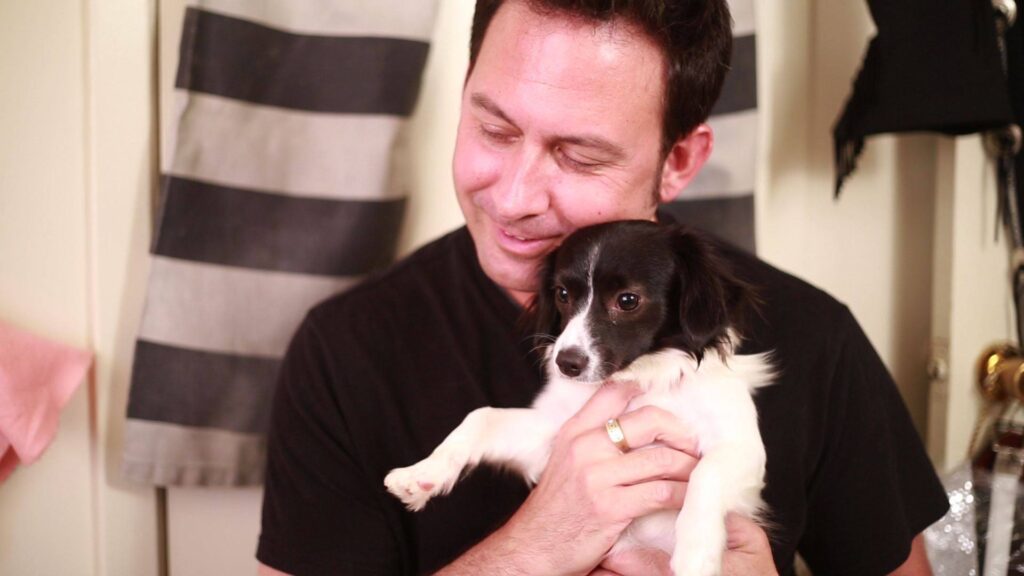Arts & Entertainment
Q&A With 'I Didn't Do It' Filmmaker Melanie Addington
“Why fund a film about a celebrity impersonator framed by a karate instructor for trying to poison the President? Because it is a true story!”
That’s the hook filmmaker Melanie Addington hopes will inspire folks to help fund the completion of a documentary she’s worked hard to create. I Didn’t Do It looks at the life of Paul Kevin Curtis and his arrest by federal authorities.
On April 17, 2013, 48 hours after the Boston Marathon bombing, and 24 hours after ricin letters addressed to the president were discovered, an federal, state and local authorities descended upon Kevin Curtis. He was taken from his home in Corinth, Mississippi to the Federal Detention Center in Oxford. After hours of interrogations, Curtis was placed in a cell at the Lafayette County jail. It was only after he overheard a comment from another inmate that Curtis realized he was accused of sending ricin-laced letters to the President of the United States, Senator Roger Wicker, and a local judge. The media jumped on the story, characterizing Curtis as a crazy Elvis impersonator and a dangerous man.
“In fact, when I first heard the story, even I thought Kevin probably did it,” Addington says.
HT: Why did you choose this subject for the documentary film? It’s obviously a peculiar and interesting subject, but why were you compelled to tackle this specifically?
MA: I was a reporter when the story broke, and the arraignment and Kevin’s eventual release all happened across the street from my work, so I was keeping a close eye on the story from day one. I met a producer friend for lunch the day Kevin was released and talked about how it would make such a great movie because truth really is stranger than fiction, especially here in Mississippi. We kept talking about it until we realized that we should be the ones to tell the story. So we reached out to Kevin’s attorneys, and they all selected us to make the film.
HT: What did you learn in the process of researching and making the film (so far) about the Curtis, James Dutschke (the man who would ultimately plead guilty to the crimes), and the situation that you did not know before beginning?
MA: I was very lucky to be in very early on the process and have access to court materials. Before I even took on the project, just looking at the “evidence list” against Kevin shocked me. It was terrifying to think the government was jumping to such a conclusion with just a Facebook post to tie the letter to and the fact that Kevin had been in trouble years before for something unrelated. As I got into the interviews, I learned so much of the trouble about Dutschke and Kevin had so little to do with terrorism and so much more to do with the clashing of two men who are just a little too much alike. To get to this level though, well, I am still writing letters back and forth with Dutschke to determine how it got to where we are now. So far everyone we ask really doesn’t know or understand why he would do this. Despite pleading guilty, Dutschke maintains his innocence to me so far.
HT: Who else was involved in making the film?
MA: My director of photography Daniel Lee Perea and I have worked together on the award-winning short film Mile High Pie. Daniel also has been making movies for years on his own. William S. Bozeman Jr. and Laura Warner have also worked previously with me on other films as producers. Laura is also serving as assistant director. Hudson Hickman and I are working together for the first time but hopefully not the last. Hudson has over 30 years of experience in the entertainment industry ranging from producing television such as Love Boat, Hotel, and MacGyver to independent films and straight-to-DVD movies.
HT: What conclusions were you able to draw about Curtis in the process of making the film?
MA: My opinion changes constantly. So much of what I have learned though is that there is always more to a person than the headline that tries to define them. Curtis is on one hand a loving father and talented musician. On the other hand he can be aggressive and intense when he is fighting for something he believes in which I think is why he has had so many conflicts with people like Everett Dutschke. But Dutschke is not the first nor likely the last to clash with Kevin. You’ll have to see the film to learn more.
HT: Is there anything not mentioned on the indigogo information about the project and its needs that you would like people to know about the film or what you need to complete it?
MA: Not many campaigns give away a Jere Allen original painting. We are pretty excited about the great raffle benefits we are providing thanks to the generosity of people in Oxford.
For the story to be told the way it needs to, we really do need these funds we are asking for, and really much more, to buy the rights to all of the extensive media footage. It is also going to pay for post production staff and music rights. This gets very expensive very quickly. We had private investors help us get through production so we were fortunate. Now, we hope that people will help us out to get this story told because it matters. No one is going to get rich off telling this story but it is an important story to Mississippi and the nation. I hope people participate.
For more information or to contribute to funding of the documentary, click here.
— Tad Wilkes, tad.wilkes@hottytoddy.com






























